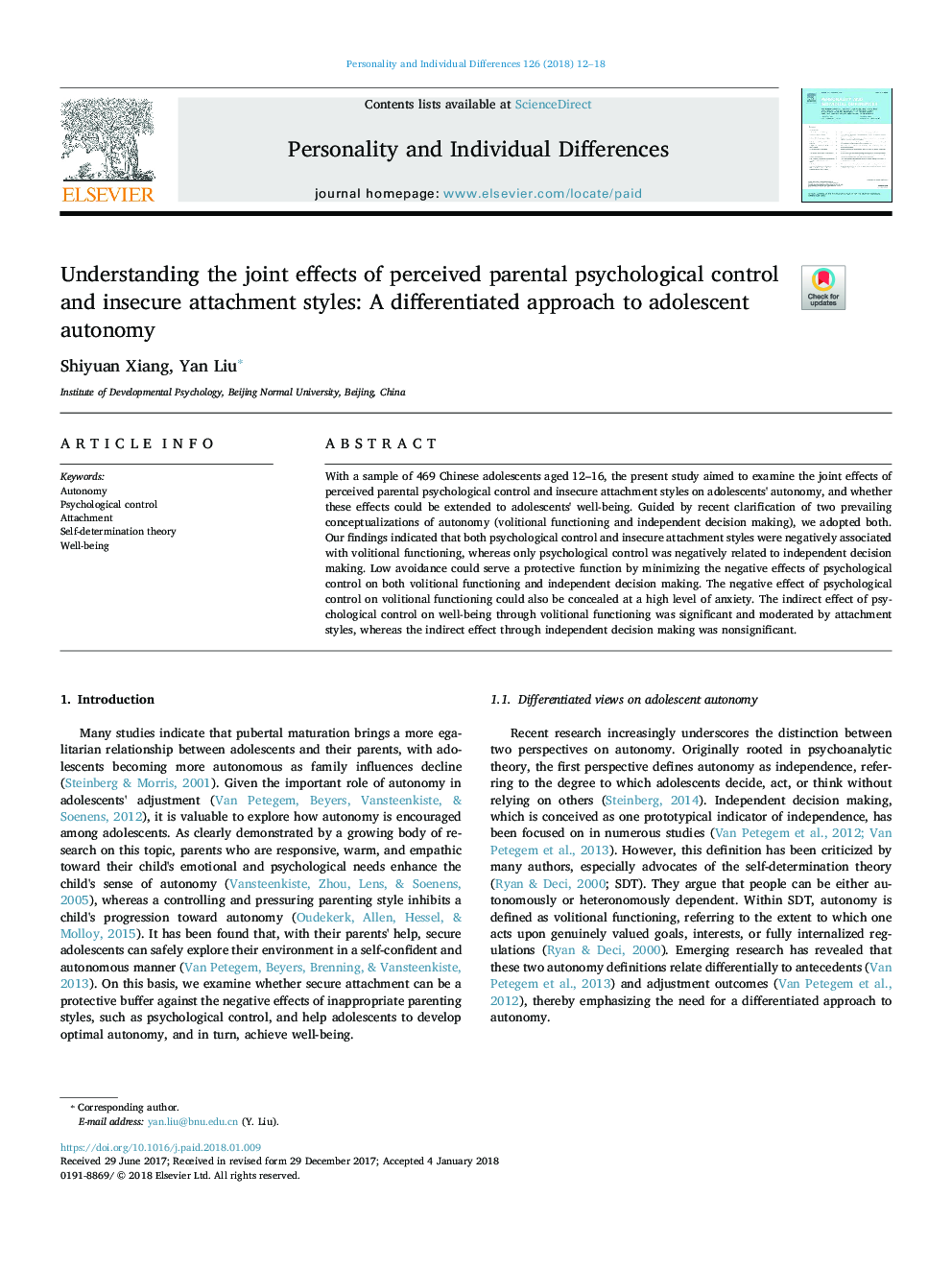| Article ID | Journal | Published Year | Pages | File Type |
|---|---|---|---|---|
| 7248933 | Personality and Individual Differences | 2018 | 7 Pages |
Abstract
With a sample of 469 Chinese adolescents aged 12-16, the present study aimed to examine the joint effects of perceived parental psychological control and insecure attachment styles on adolescents' autonomy, and whether these effects could be extended to adolescents' well-being. Guided by recent clarification of two prevailing conceptualizations of autonomy (volitional functioning and independent decision making), we adopted both. Our findings indicated that both psychological control and insecure attachment styles were negatively associated with volitional functioning, whereas only psychological control was negatively related to independent decision making. Low avoidance could serve a protective function by minimizing the negative effects of psychological control on both volitional functioning and independent decision making. The negative effect of psychological control on volitional functioning could also be concealed at a high level of anxiety. The indirect effect of psychological control on well-being through volitional functioning was significant and moderated by attachment styles, whereas the indirect effect through independent decision making was nonsignificant.
Related Topics
Life Sciences
Neuroscience
Behavioral Neuroscience
Authors
Shiyuan Xiang, Yan Liu,
